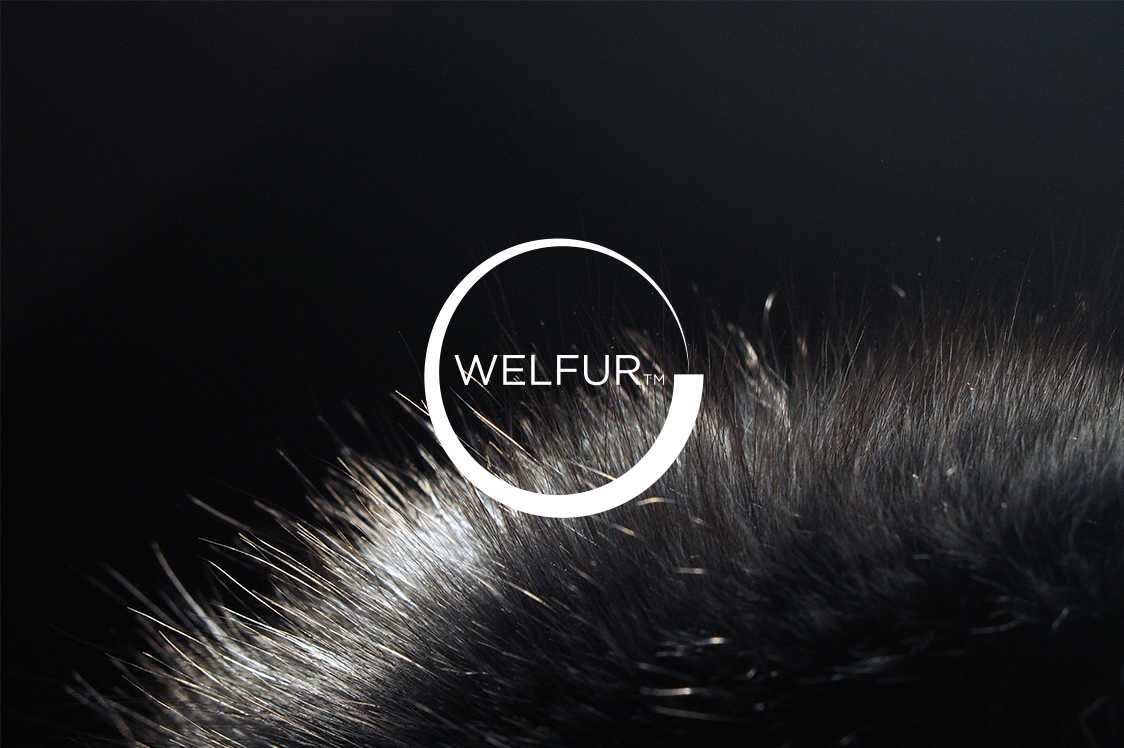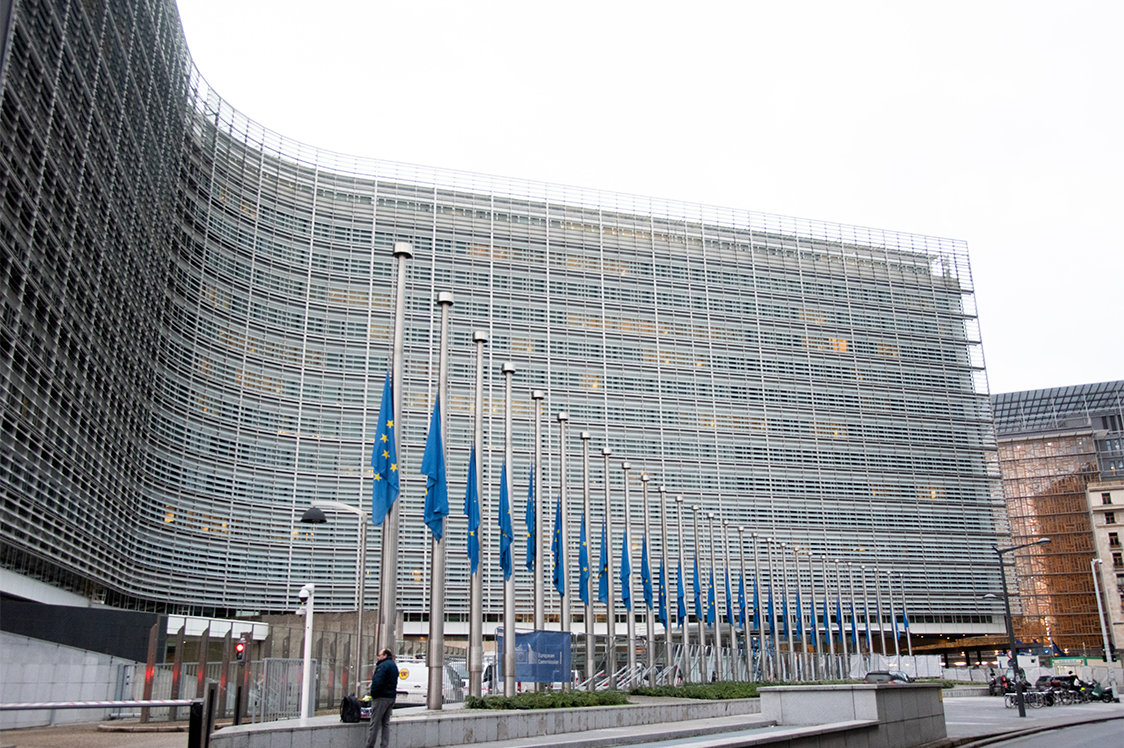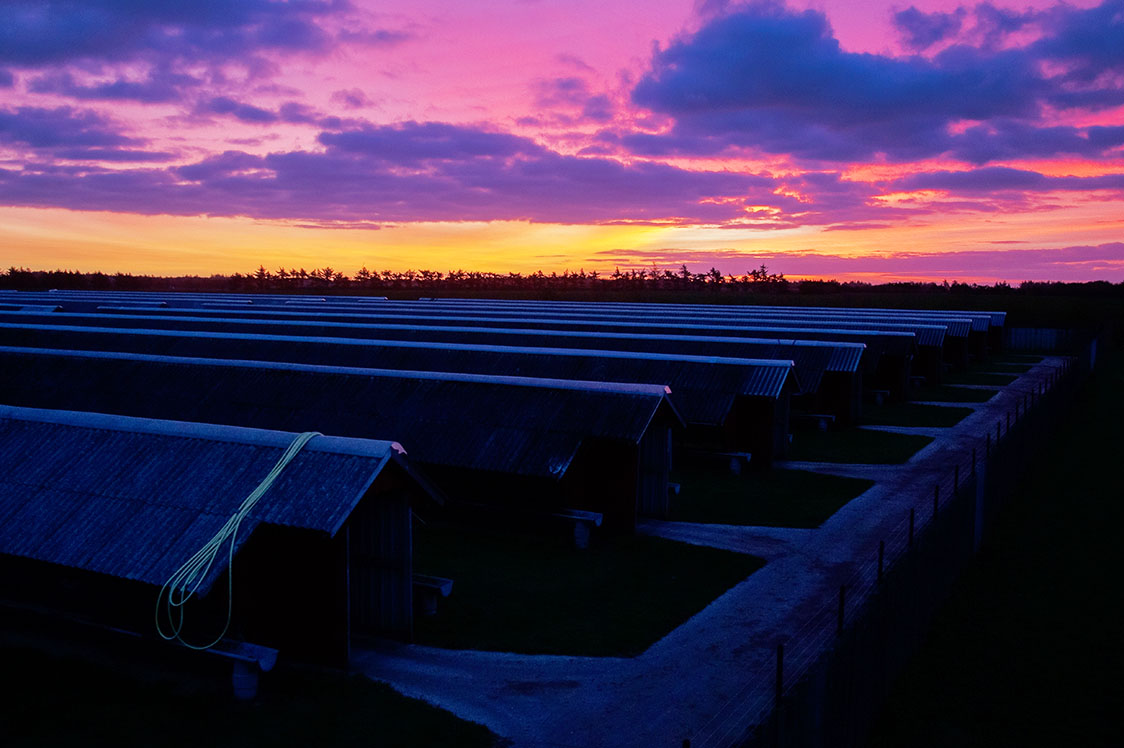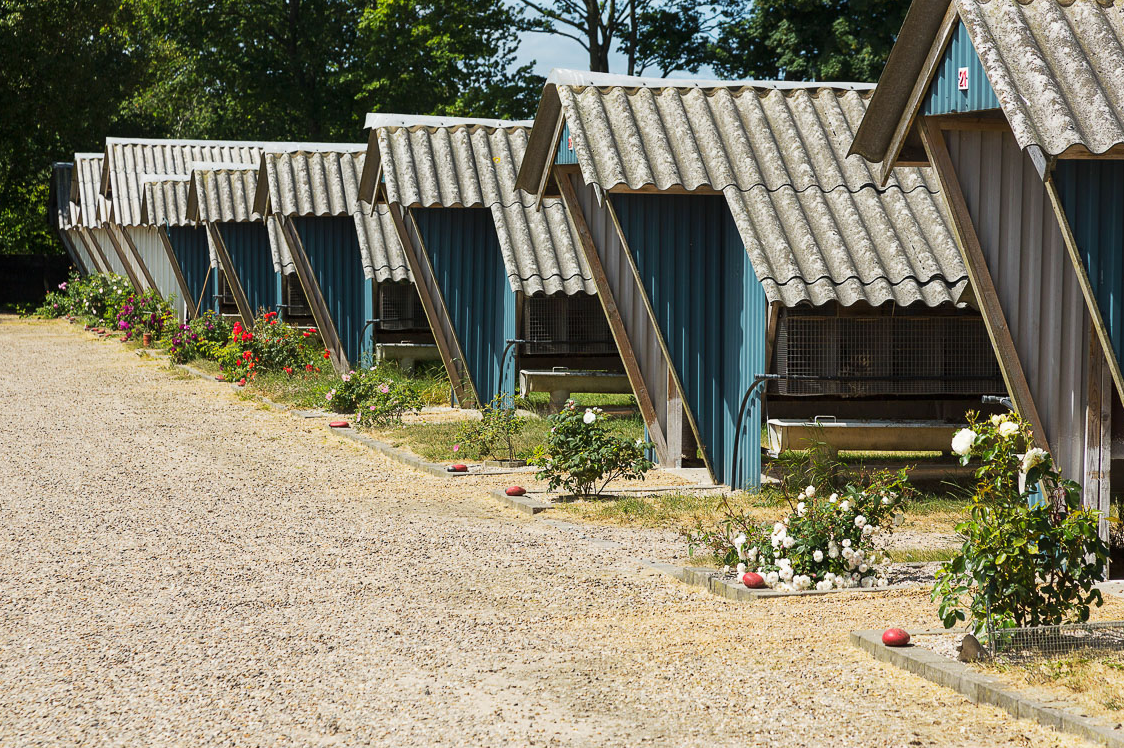NEWSLETTER
2295

LVMH Hits The 100% Target for Certified Mink, Fox and Finnraccoon Fur
Dec 09, 2020
by Vladislava Gospodinova
French luxury conglomerate LVMH is using only 100 % certified mink, fox and finnraccoon pelts hitting the target set in it's Animal-based Raw Materials Sourcing Charter that regulates the sourcing of furs, leathers, exotic leathers, wool and feathers.
"Using those materials only works if we respect some very strict requirements. We need to adopt the best animal welfare practices for our materials. Animal welfare is, of course, a topic that needs to be worked on with scientists. We want that to be scientifically-based," said Cathelijne Klomp, the Sourcing & Transparency Environmental Projects Manager at LVMH during the Textile Exchange Sustainability Conference.
Sustainable sourcing of natural materials is a major part of the sustainability efforts of the luxury giant, which includes fashion brands such as FENDI, Louis Vuitton and Dior.
"Naturality is an inspiration for our artistic directors. There are also benefits in using these materials. From an environmental perspective, using animal-based materials instead of their alternatives can be positive in terms of the environmental impact and biodegradability of those materials," added Ms Klomp.
LVMH described natural fur as a strategic material for the group alongside leather and exotic skins and the fashion group is increasingly focusing on responsible sourcing.
In September 2019, the luxury group announced the new guidelines with the Charter promising to provide full traceability of animal-derived materials. To achieve this, LVMH is working only with suppliers that respect people, meet the highest animal welfare standards, and limit the environmental impact of their supply chains.
When it comes to natural fur, the Charter envisages achieving 100% certified pelts and 100% traceability up to the farm in 2025.
In 2019, in its annual Environmental report, LVMH referred to the certification programme WelFur as an example of a recognised European quality standard on fur that is being produced responsibly and sustainably.
Yet animal welfare is only a part of the sustainability ambitions of the luxury conglomerate.
"We want to adopt a holistic approach. When we talk about animal-based products, the first thing we think is animal welfare. But animal welfare is not our only priority when it comes to sourcing; we need to consider the environmental impact of those materials, the social impact, the conservation, the ethics behind it," concluded Ms Klomp.
Other Stories In This Issue
2287

European Commission bids on Science for New Animal Welfare Legislation
Dec 09, 2020
by Vladislava Gospodinova
The European Commission wants to keep the new animal welfare laws up to date with the latest scientific knowledge, according to an EU official. This would require taking into account the most recent science when revising the current animal welfare legislative framework.
"We don’t start from scratch – we have previous evaluations, we have previous knowledge, we know there are certain shortcomings to be addressed - there is a gap between legislation and recent science, and an inability to assume new science flexibly," said Christian Juliusson, DG SANTE during the online event on animal welfare organised by the Sustainable Fur Forum on 2 December.
The revision of the animal welfare legislation is part of the Farm to Fork Strategy, which is the cornerstone of the Green Deal and the ambitions to make the continent climate neural by 2050.
"The commitment is quite specific. There is indeed a need for a science-based approach, a need for new science. One objective is to align the legislation in the future with the latest knowledge," added Mr Juliusson.
The process started in May this year with the so-called ‘'fitness check’' which will assess all existing law affecting animal keeping and breeding practices, transport and killing methods. The Commission hopes it would also be able to enforce stricter control over animal welfare breaches.
"There is also the clear ambition to broaden the scope compared to what we have today and also make it easier to enforce [..] Certain species of animals lack a specific legislation for them," said Mr Juliusson.
In September, the Commission threatened to take several Member states to court over violations of animal welfare of farm animals.
‘"Our task is to make sure the future legislation is enforceable to a larger extent than it is today. The ultimate goal is to ensure a high level of animal welfare."
This, according to a representative of the European Reference Centre on the welfare of poultry, rabbits and small animals, could be accomplished if the legislation envisages the use of animal-based indicators in assessments.
"The actual animal welfare legislation is exclusively based on resource-based measures when it should be using animal-based measures instead, which are more accurate," said prof. Prof. Steen Henrik Møller.
The purpose of the EU reference centres for animal welfare is to gather existing scientific knowledge and contribute to the dissemination of good practices on animal welfare in the EU. The scientific and technical expertise of the centres will be used to carrying out studies and developing methods for animal welfare assessment and improvement.
As part of the revision of the animal welfare framework, the Commission is planning to launch an external study next year and to consult stakeholders through public consultation. It will also look into the impacts of the future animal welfare legislation on the agriculture, trade and environment.
2285

MEP: Mink case shows we need common ground for disease prevention in EU
Dec 09, 2020
by Mick Madsen
MEP Asger Christensen (Renew) said the handling of mink during the current Covid-19 crisis has demonstrated very different approaches to disease prevention between European countries. This calls for increased European coordination in the future.
"The pandemic has revealed that different countries have different approaches to the situation, both when we talk about the human side and animal productions. We should exchange knowledge and experience to establish a common ground for the handling of such situations in the future. However, I would like to emphasize that I am against any ban from the EU on the production of fur. This is solely a member state competence," he said.
As a Danish dairy farmer with mink farming neighbours and -friends, he has even participated in the culling of Danish mink. The decision to cull all mink in Denmark was announced by the Danish government on the 4th of November and has remained widely questioned in the Danish debate ever since.
MEP Asger Christensen is also critical towards the decision, which he describes as surprising and awful.
"The situation and the decision-making process has received sharp criticism in Denmark. There has been a lack of second opinions and verification of the scientific foundation for the decisions made. Denmark is a small country, and we need outside perspectives. Too few people have been involved in the process. I think the government exaggerated the drama, for example when they said Northern Jutland could become the new Wuhan because of cluster-5," he said.
There is, however, no turning back from the decision at this point. There will be no mink production in Denmark until at least 2022. Yet, there are good reasons to take away the learnings and put current experiences into future perspectives. At the moment an EC working paper on mink farming is underway, and Asger Christensen thinks it will point to increased international coordination.
"I expect the report will point to a lack of common European coordination for this situation. We have a common strategy already in other areas like foot-and-mouth disease, where we have a precise manual for what we must do during outbreaks. We should have a better common ground to address such situations, rather than dealing with them from border to border," he said.
2263

Denmark put precaution before proportionality in national scandal
Dec 04, 2020
by Mick Madsen
A new book throws more light on the closing of Danish mink farming, that happened in a process now coined the biggest democratic scandal in modern Danish history. Author and public health policy expert Kjeld Møller Pedersen’s book concludes that the Danish public health policies enforced as a result of the corona crisis have followed an overly cautious approach, in which rule of law, expert advice and socio-economics have receded into the background. Amongst other policy examples, the most shining one is ‘minkgate’.
"The government was under a lot of pressure - it is only fair to mention. But instead of pursuing the principle of proportionality, where the least intrusive measures are taken in relation to the purpose, the government has consistently pushed the precautionary principle in front of it and applied an argument that actions should be taken here and now. This is undoubtedly related to the fact that with the coronavirus we have been confronted with something unknown and dangerous. Maybe the politicians were struck with a bit of anxiety and panic, and in these situations, they have listened less to the professionals who are used to dealing these things," Kjeld Møller Pedersen, who is a professor at the Southern University Of Denmark, said.
According to experts from Danish Veterinary Consortium, veterinary professionals and organisations were not consulted in line with the Danish and European tradition of bringing together relevant parties when trying to limit infection. The holistic approach is also called One Health, an approach also promoted by the World Organization for Animal Health (OIE) and the European Centre for Disease Prevention and Control (ECDC) in their recent risk assessments of the mink situation.
Veterinary Virology PhD and former Deputy Chief in ECDC, Per Have, points out that the central arguments for eliminating the entire mink industry – the risk for reduced vaccine effects and the speed of new mutations in mink – have proved too weak to justify the decision.
"The biggest problem is that you have made a big decision without proportionality on the wrong basis," he said.
Also, Kjeld Møller Pedersen points to the proposed vaccine reduced vaccine effect of the so-called cluster 5 mutation as a problematic argument for the cull. When the genome sequencing data was finally released by Danish authorities, experts in and outside Denmark quickly labelled the fear of reduced vaccine effect as exaggerated.
"It all had to go so fast that there was no documentation of the effect of the measures initiated, which is part of the precautionary principle. But to say it in a diplomatic way, it can certainly be said that healthcare documentation of the closing (of the mink industry) has been incomplete. Instead, you have followed an overly cautious approach," Kjeld Møller Pedersen said.
2269

Science, not Fiction Must Shape Future Animal Welfare Law
Dec 04, 2020
by Vladislava Gospodinova
A single EU animal welfare law needs to be based on science and define a uniform methodology when it comes to animal welfare. This was one of the conclusions of the second webinar of the Sustainable Fur Forum. The event hosted MEPs, scientists, industry experts and officials from the European Commission for a discussion on the new opportunities to improve animal welfare law in the light of the EU REFIT process.
The event started with MEPs expressing support for farmers following the cull of mink in Denmark.
"I am from Denmark, and I have seen how the mink production was closed within weeks. It has been very difficult to watch. It was very sad to see proud families close," said MEP Asger Christensen (Renew Europe Group, Denmark) in his keynote speech.
"We simply need more research and good evidence before taking such more dramatic action," commented MEP Christensen on the decision of the Danish government to cull healthy animals.
He highlighted the importance of having a harmonised approach to animal welfare for the European Parliament, giving as an example the creation of the special committee on the welfare of animals during transport, and the future Implementation report on on-farm animal welfare.
"The cornerstone of the Farm to Fork Strategy is indeed animal welfare," said Mr Christian Juliusson from DG SANTE. He explained that the European Commission has until the end of 2023, to revise the animal welfare law to ensure the highest level of animal welfare.
"The commitment is quite specific. That’s indeed the need for a science-based approach, for new science to align the legislation of the future with the latest knowledge," said Mr Juliusson.
According to Prof. Steen Henrik Møller, representative of the European Reference Centre on the welfare of poultry, rabbits and small animals, this could be achieved if the legislation envisages the use of animal-based indicators in assessments.
"The actual animal welfare legislation is exclusively based on resource-based measures when it should be using animal-based measures instead, which are more accurate. They allow to observe the animal directly to determine its wellbeing," added prof. Møller.
One animal welfare assessment system which already adopted this approach is WelFur, a science-based certification programme for fur farms.
"WelFur is the first programme to cover the whole European continent and now also beyond, with farms in North America. 98% of the fur farmers in Europe [2.926 farms] have accepted to be part of the Welfur process", explained Mette Lykke Nielsen, CEO at Fur Europe. The on-farm implementation, handled by an independent third-party, ensures its reliability.
"Animal welfare will always be our first priority. The farmers’ main interest is taking good care of the animals", she added.
She encouraged the Commission and Reference Centre to look at WelFur as an inspiration for a harmonised and comprehensive animal welfare assessment methodology.
Given the Welfur experience, Mette Lykke Nielsen advocated for a single EU animal welfare law, which would allow to clarify the obligations and duties of all actors involved, define a uniform methodology, and encourage the Member States to provide harmonised training. This would also make it possible to collect comparable data, share best practices and benchmark progress.
MEP Juozas Olekas (S&D, Lithuania), Chair of the SFF, concluded that the debate on animal welfare should always be based on scientific evidence, and involve a comprehensive dialogue between policymakers and the actors on the ground.
The next SFF event will be held during the first 2021 quarter.